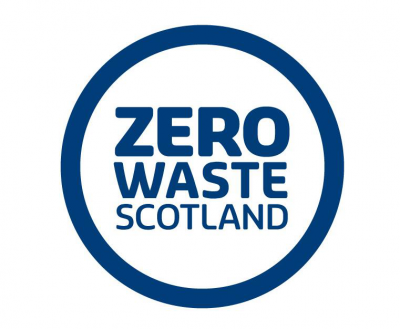Circular economy in Scottish regions worth £1bn

Tayside, a region including Dundee and Perth, could see around a £400-million boost to its local economy if it adopts a circular approach to business, while £625 million of potential value is predicted for Aberdeen and Aberdeenshire in North East Scotland.
The figures come from two reports by the Scottish Government-funded circular economy organisation Zero Waste Scotland (ZWS), looking into the potential benefits of a circular economy in the cities and regions of Scotland, moving away from a traditional linear model of production, consumption and disposal towards a model where waste is diminished and natural resources are kept in use at a high value for as long as possible, through reuse, repair and remanufacture.
According to ZWS, a ‘cities and regions’ approach to implementing a circular economy is beneficial because it enables plans to be tailored to the different specialisms and resource bases of different regions. Key circular economy opportunities in both regions were identified in the construction, energy infrastructure, manufacturing and food and drink sectors.
For example, Tayside accounts for 70 per cent of the total land in Scotland used for growing soft fruit, and 49 per cent of land for growing potatoes – by-products and leftovers from these industries constitute ‘significant’ amounts of biomass and potential feedstock that could be recovered rather than going to waste.
In both Tayside and Aberdeen and Aberdeenshire, a significant proportion of the potential economic benefit is located in the construction and built environment sector. Around £238 million is said to be achievable for the latter region in this industry, through measures such as designing new buildings with longevity and easy of maintenance in mind, repurposing obsolete or underused buildings for new, minimising waste and reusing materials.
The reports, produced in partnership with local Chambers of Commerce, were launched by First Minister Nicola Sturgeon at the Circular Economy Hotspot 2018, an annual gathering of international experts in the circular economy, held in Glasgow on 31 October.
Sturgeon said: “These reports show the exciting potential of a circular economy where reducing waste and investing in keeping materials in circulation for as long as possible can release an estimated £1 billion of economic opportunities for Tayside, Aberdeen and Aberdeenshire. This demonstrates the overall scale of the opportunity for Scotland.
“Scotland is already leading the way with its ambitious and challenging targets for recycling which are above and beyond the EU targets. However, we want the narrative to move beyond recycling to reuse, repair and remanufacturing of items. In this light, we are currently considering next steps for introducing a deposit return scheme which will help us achieve our ambitions.”
 Nicola Sturgeon speaking at the Circular Economy Hotspot in Glasgow
£700k funding for three circular businesses
Nicola Sturgeon speaking at the Circular Economy Hotspot in Glasgow
£700k funding for three circular businesses

Investment in circular practises has been central to the government’s approach to business, with £70 million announced in 2016 for a Circular Economy Investment Fund and Service to support innovative small and medium-sized enterprises (SMEs) moving towards a circular economy. Four ‘Circular Regions’ have been set up across the country – Glasgow, Edinburgh, Tayside and the North East – each receiving targeted funding and support.
The latest round of support from the Investment Fund, announced at the Hotspot on Wednesday, saw £700,000 worth of funding for three businesses in Scotland already exemplifying circular economy concepts.
Sharing the £700,000 funding are:
- Total Homes, a three-sector partnership delivering house clearances for Housing Associations in Glasgow, ensuring that household appliances, furniture and other goods are re-used;
- Revive Eco, which collects used coffee grounds from large coffee chains and independent cafes and recycles them to create high value bio-oils with a range of applications; and
- Angus 3D, a Tayside start-up aiming to bring the latest metal 3D printing technology to Scotland. This tech will reduce waste in the design process and extend the lifespan of machinery by allowing obsolete parts to be manufactured from 3D scans.
Pauline Smith, Director of Total Homes, said: “The investment from ZWS has allowed us to create a business that transforms the way items are currently disposed of from vacant housing association properties. 80 per cent of items which we take out, such as furniture, small electricals, kitchen utensils, textiles and toys, will be reused to support people being re-homed or simply providing an affordable way to refurnish their home.
“This service embraces the vision for a circular economy. When we clear properties, items are tested, repaired, cleaned or upcycled and continue in use instead of being landfilled.”
Iain Gulland, Chief Executive of ZWS, which administers the investment fund, commented: “It’s fantastic to be able to profile the work that’s being done in Scotland to kickstart the circular economy to a global audience… Our Circular Economy Investment Fund is helping to bring exciting new ideas to market and we are seeing ever greater interest from private backers, who recognise that the future is circular.
“The challenges in building a circular economy are big but they are only matched by the potential benefits to businesses”.
The reports into regional benefits of a circular economy can be found on the ZWS website.







